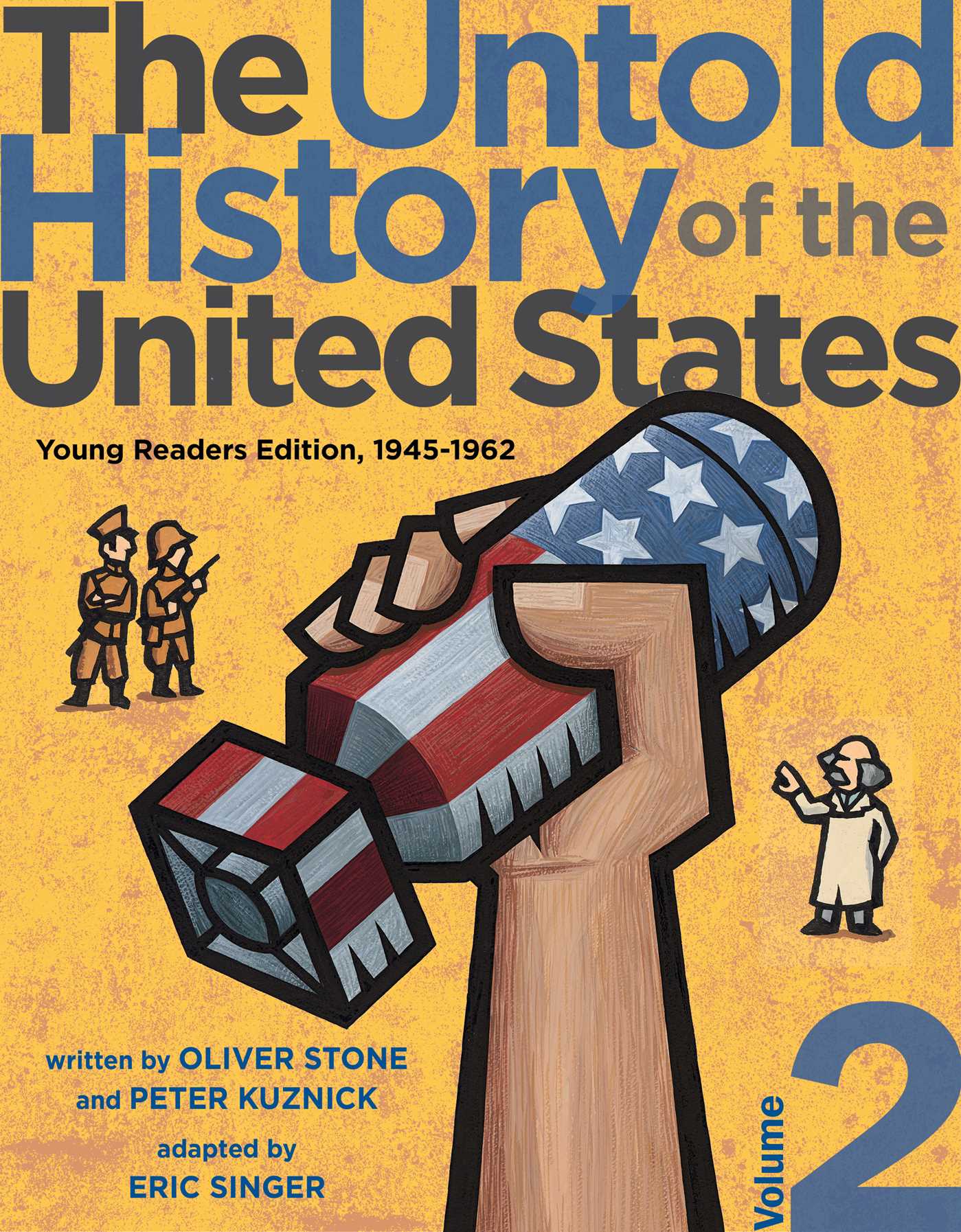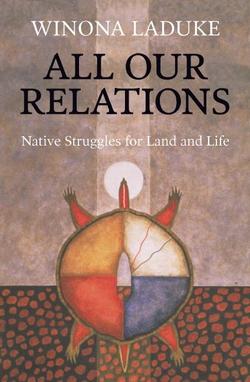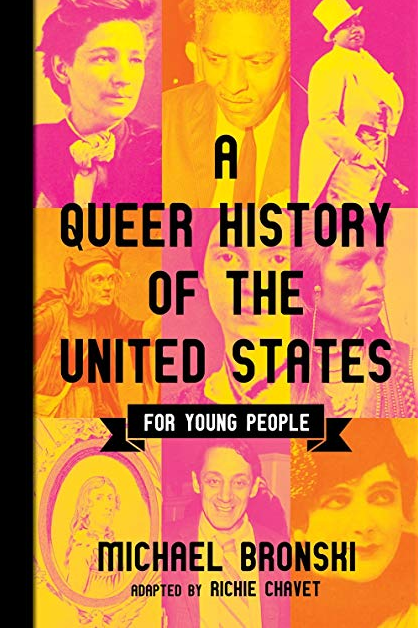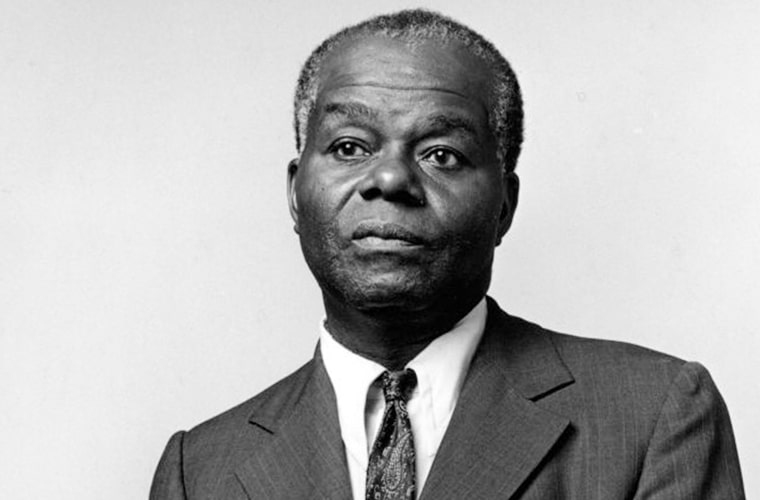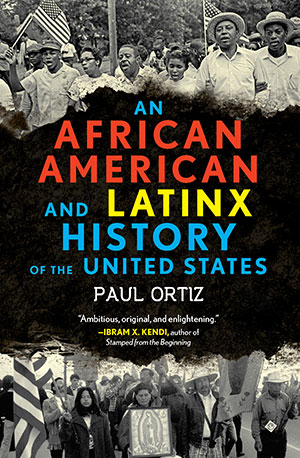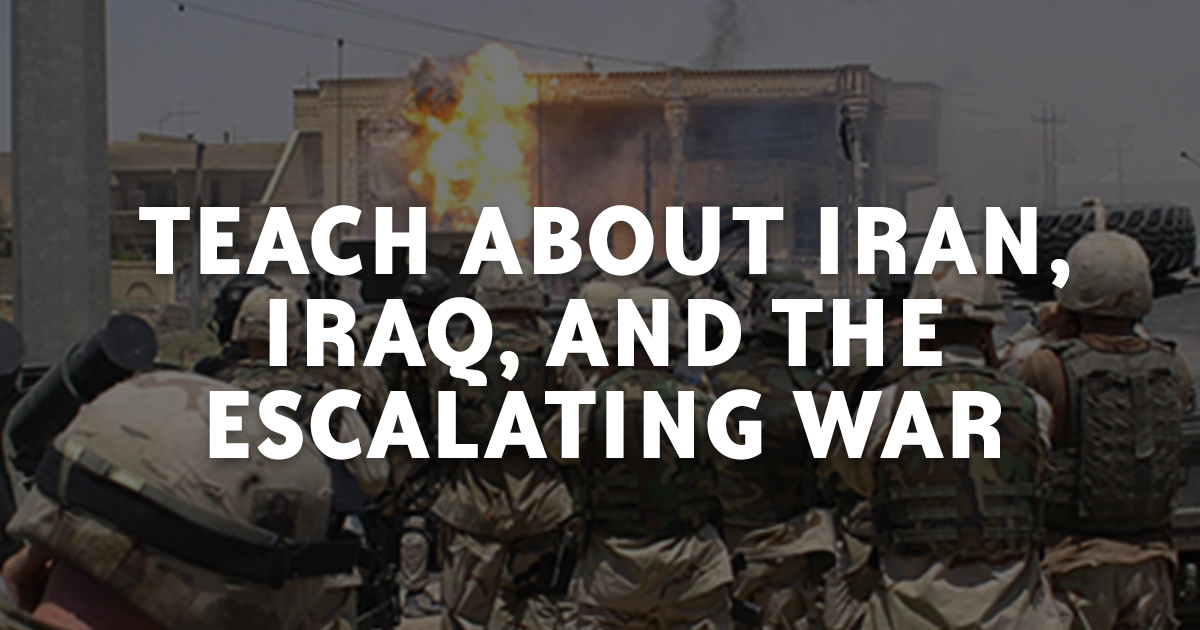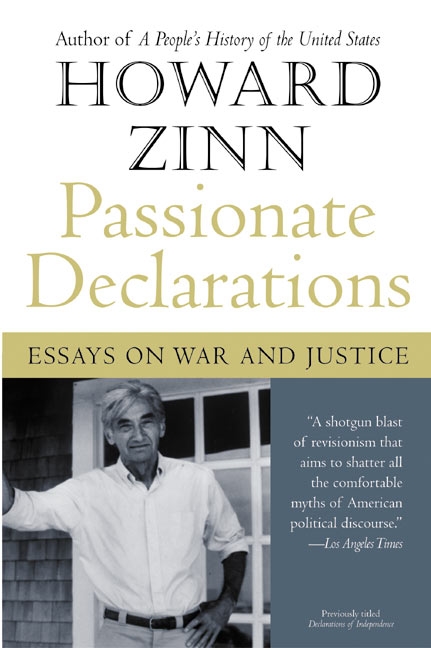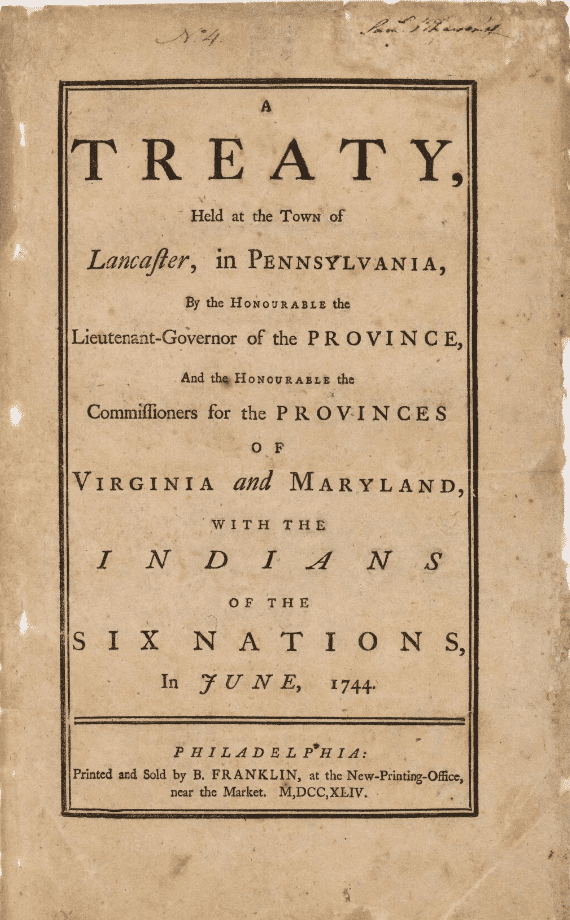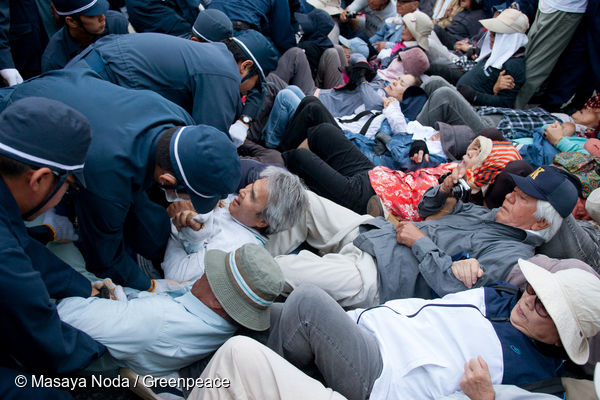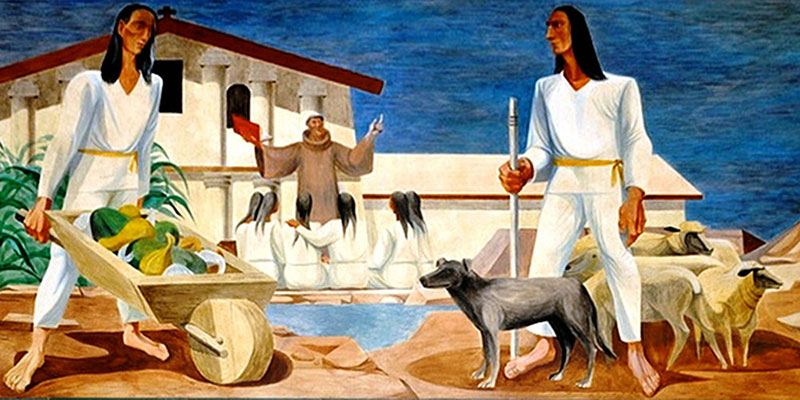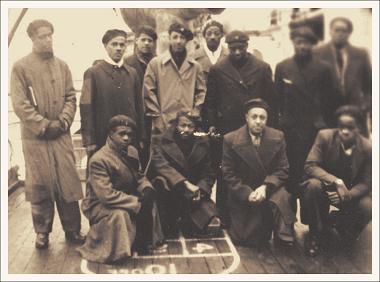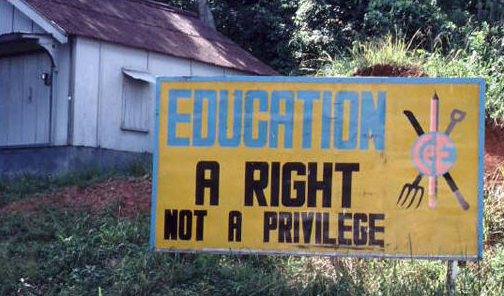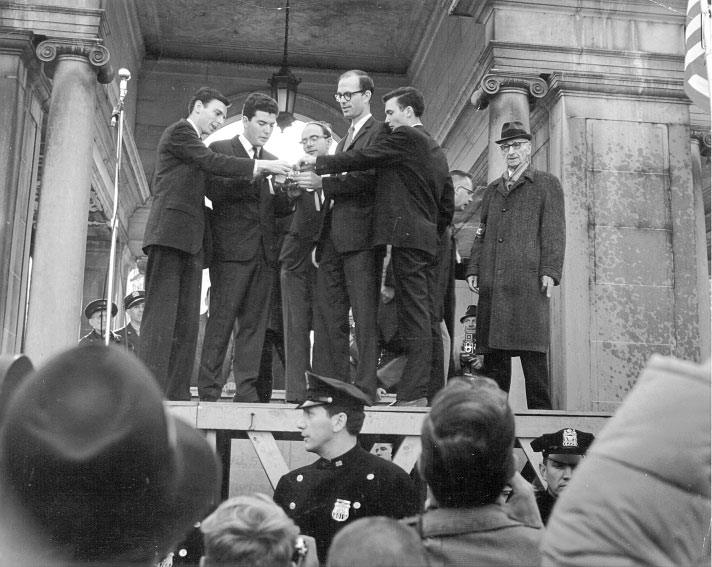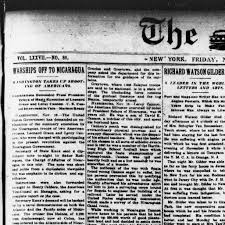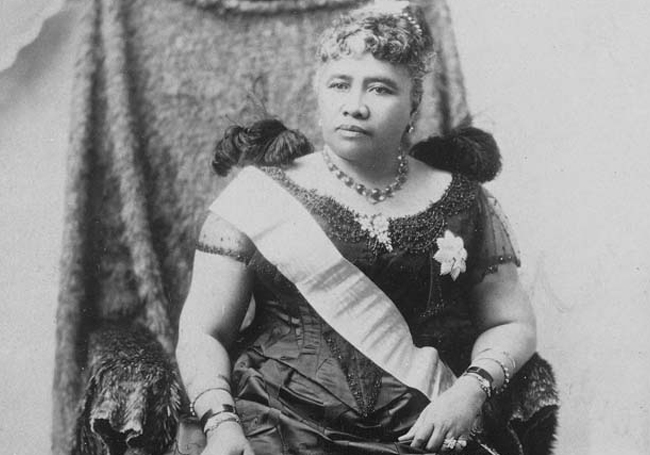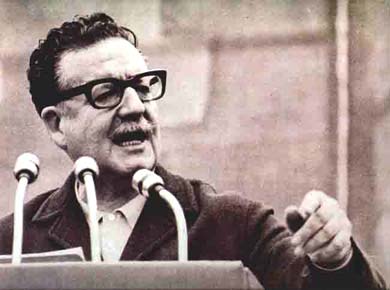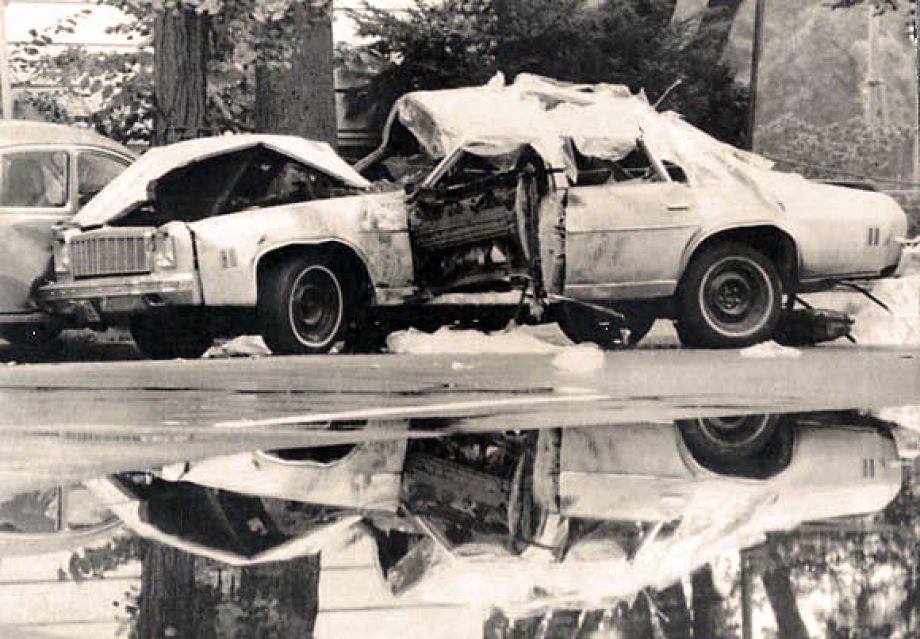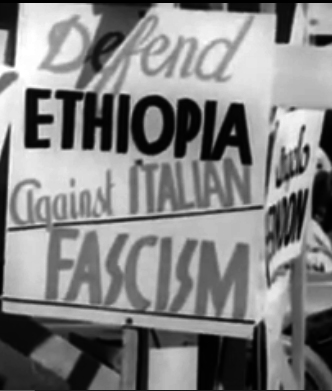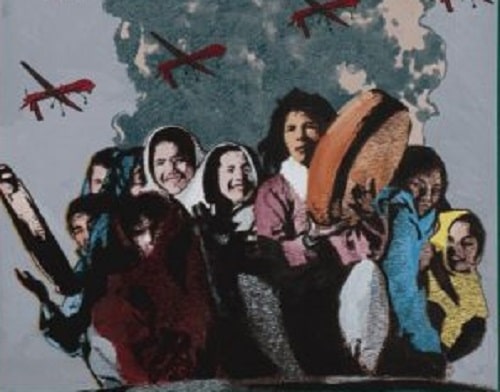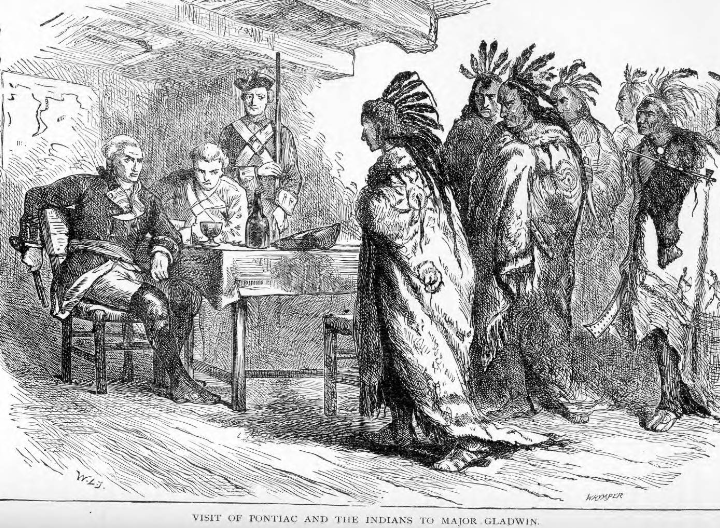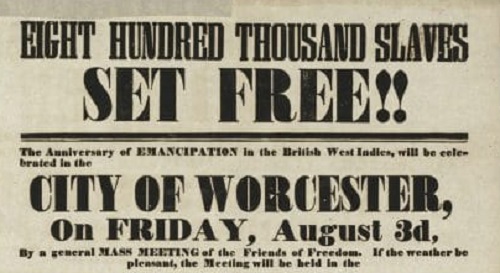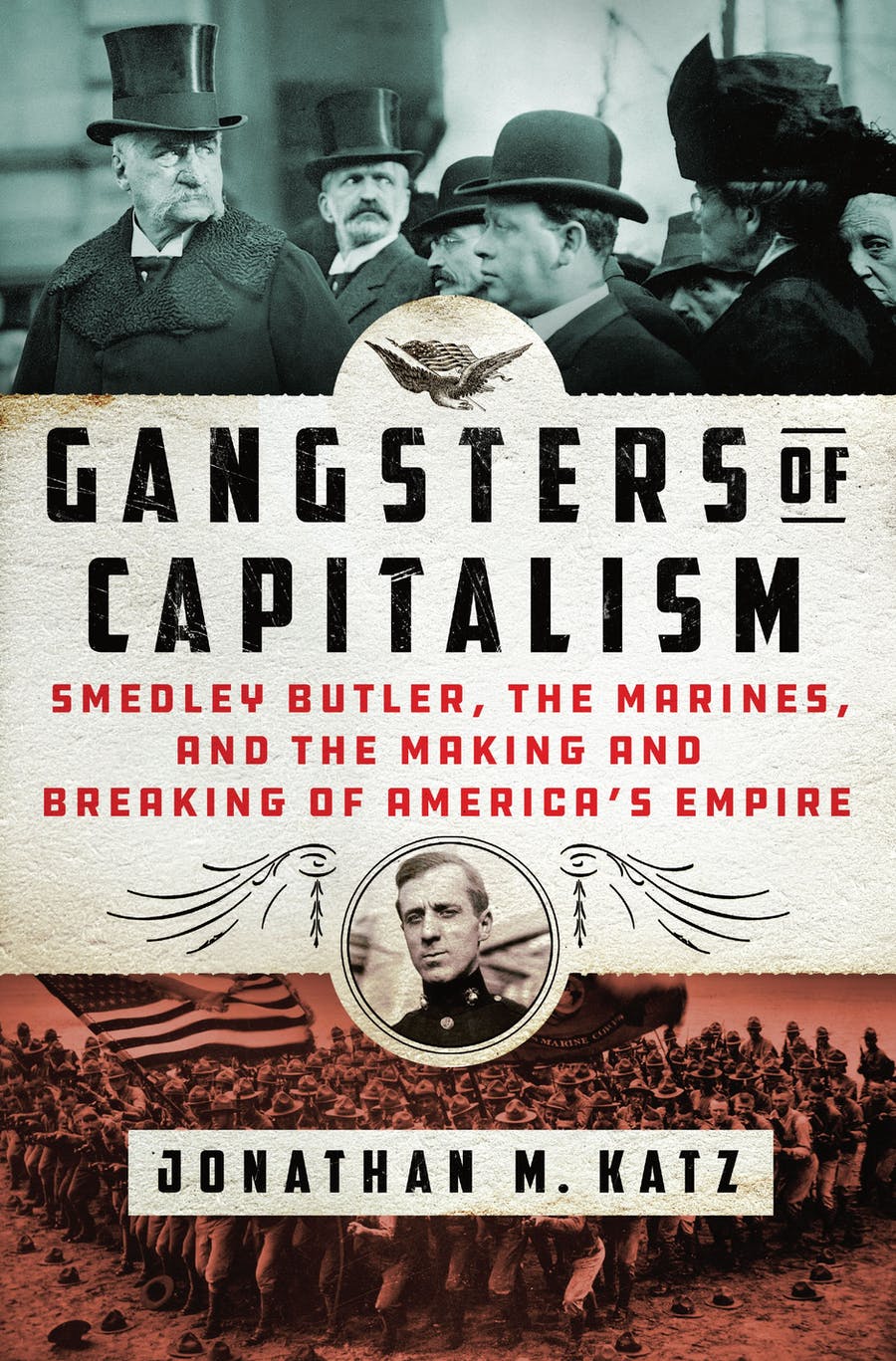Book — Non-fiction. By Oliver Stone and Peter Kuznick. Adapted by Susan Campbell Bartoletti and Eric S. Singer. Vol 1. 2014. 400 pages. Vol 2. 2019. 320 pages.
These are two volumes of illustrated histories, adapted for students from a documentary book and film of the same name.
Continue reading
Book — Non-fiction. By Winona LaDuke. 1999.
Native American activists provide testimonies to indigenous efforts to resist oppression and fight both cultural and environmental degradation in the face of U.S. colonialism.
Continue reading
Book — Non-fiction. By Michael Bronski, adapted for by Richie Chevat. 2019. 336 pages.
A young adult readers edition of the original text explores the history of LGBTQ+ experiences in the U.S. since 1500.
Continue reading
The teacher, scholar, and Pan-Africanist intellectual leader was born in Alabama.
Continue reading
Book — Non-fiction. By Paul Ortiz. 2018. 296 pages.
This narrative, intersectional history describes the shared struggle for African American and Latinx civil rights, and argues that the “Global South” was crucial to the development of the United States.
Continue reading
Teach students about U.S. imperialism and war in the Middle East, and offer a historical context, with people's history resources.
Continue reading
Book — Non-fiction. By Howard Zinn. 2003. 368 pages.
A selection of passionate, honest, and piercing essays looking at political ideology in the United States.
Continue reading
Digital collection. View digitized historic treaties between Indigenous tribes and the U.S. government alongside key historic works that provide context to the agreements made and the histories of shared lands.
Continue reading
Film clip. Voices of a People's History.
Dramatic reading of Cindy Sheehan's speech "It's Time the Antiwar Choir Started Singing" (2005) is read by Marisa Tomei and Staceyann Chin.
Continue reading
Audio CD. By Howard Zinn. 2011. 60 minutes.
Recorded in Madison, Wisconsin on October 9, 1991, Howard Zinn challenges the myths of the Columbus legend.
Continue reading
Draft cards burned in solidarity with David Miller, a Catholic pacifist who was one of the first to publicly burn his draft card.
Continue reading
President William Howard Taft ordered U.S. warships to Nicaragua to defend U.S. corporate profits.
Continue reading
Chile’s democratically elected president, Salvador Allende was killed in a U.S.-backed coup.
Continue reading
Orlando Letelier and Ronni Moffitt were killed in Washington, D.C. by a U.S.-backed Augusto Pinochet regime car bomb.
Continue reading
The United States and United Kingdom began the war in Afghanistan.
Continue reading
Fighting alongside Odawa Chief Pontiac, the unified Native warriors defeated 250 British soldiers during their siege at Fort Detroit during Pontiac’s War.
Continue reading
August First Day became a symbol of hope for enslaved people and abolitionists in the United States when Britain passed the Slavery Abolition Act in 1834, abolishing slavery throughout its colonies around the world.
Continue reading
Book — Non-fiction. By Jonathan M. Katz. 2022. 432 pages.
This book traces a path from the first wave of U.S. overseas expansionism to the rise of fascism in the 1930s to the crises of democracy in our own time.
Teaching Activity by Jonathan M. Katz
Continue reading

